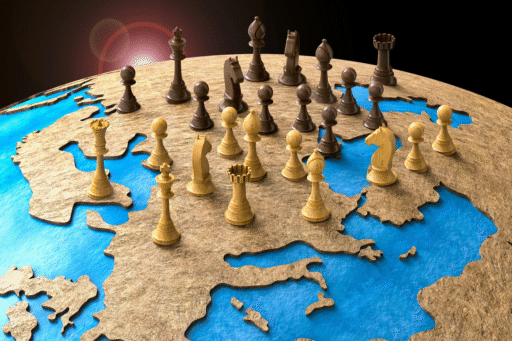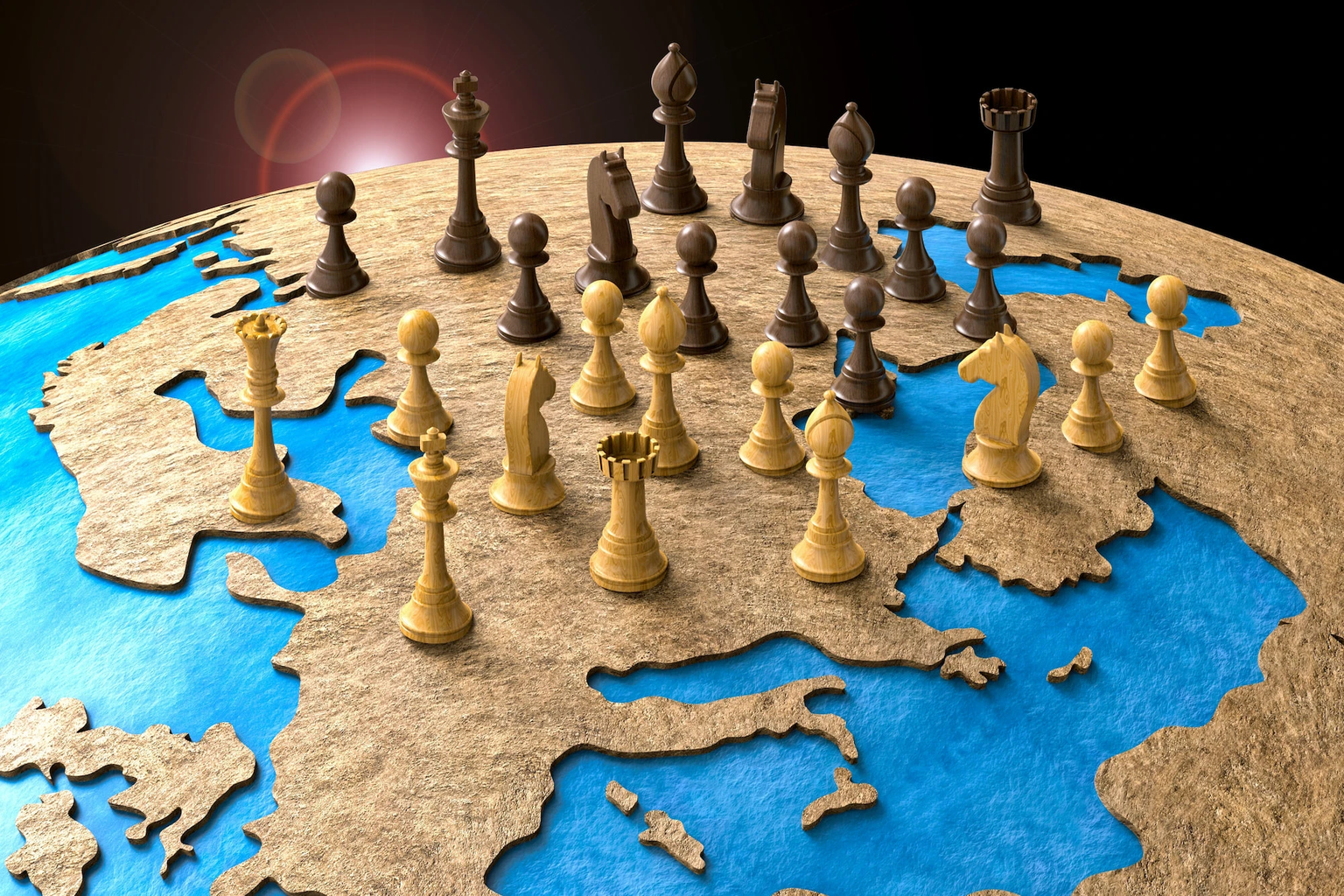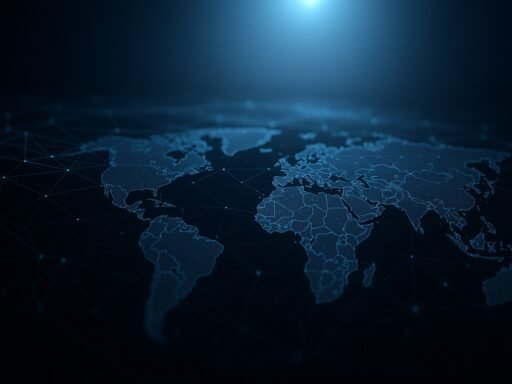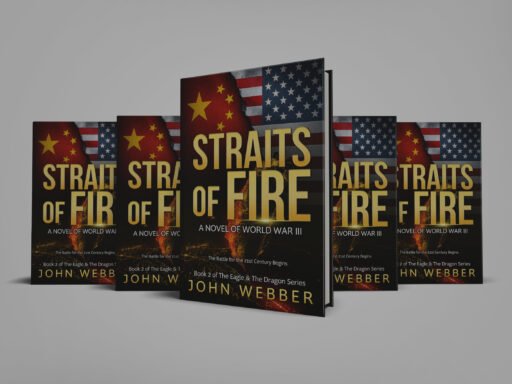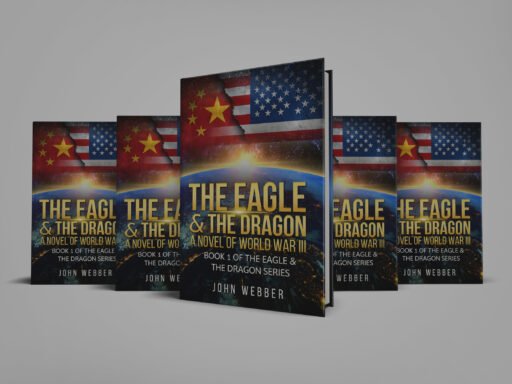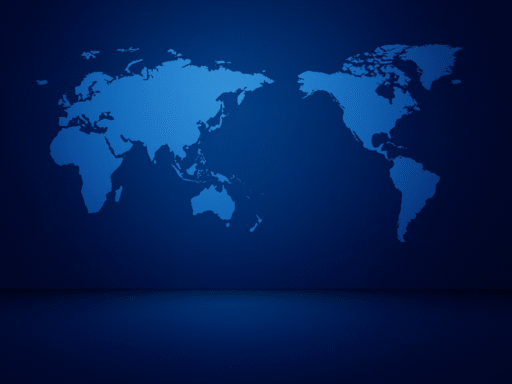Power is not an academic theory or a polite topic for panel discussions.
It is the raw ability of nations to shape events beyond their borders, to bend reality toward their interests, and to survive in a world where competition never ends.
Empires have risen and fallen on it. Borders have been drawn in blood over it. And despite what idealists claim, power—not intention—still determines outcomes on the world stage.
If you want to understand geopolitics, you must start with national power: what it is, how it is built, and why some nations thrive while others crumble. Everything else flows from this foundation.
What is National Power?
When we hear someone say a nation is powerful, the phrase is often used loosely—sometimes to describe a big military, a strong economy, or just global prestige. But in geopolitics, the word powerful has a very specific meaning.
It is not about popularity, morality, or even wealth alone.
National power is about one thing:
Power is the ability to shape events beyond your borders and protect your interests—despite resistance.
A truly powerful nation is one that can influence the behavior of other countries, deter threats, impose costs on adversaries, and secure its survival in an unstable world. Power is not a slogan.
It is a capability to project influence far from home.
For example, the United States can move carrier strike groups across oceans. China finances ports in Africa and railways in Eurasia. The European Union shapes regulatory standards used around the world. This power reaches outward.
It is noteworthy that a nation doesn’t necessarily have to reach outward in order to be powerful. History is replete with examples of countries that are powerful, yet remain insular. Take for example the United States of the late-nineteenth or early-twentieth century: the nation had to the world’s largest economy, the ability to influence markets across the world and a relatively strong naval presence that rivaled most of the European powers of this time. A more modern example of a powerful nation not yet playing on the global stage is India: nuclear armed, able to influence markets, and the third largest GDP in the world (on a PPP basis).
Taking a further look at what defines a powerful nation, there are five basic traits:
- Reach – again, the ability to shape events beyond one’s borders.
- Resilience – the ability to sustain one’s options to shape events, not just for a short period.
- Independence – the ability to shape events without being dependent upon others.
- Deterrence – the ability to use power to prevent others from shaping their own outcomes.
- Will – the desire to use that power, if and when it becomes necessary.
Power is not about speeches, diplomatic niceties, or moral posturing. It is about outcomes. Can a nation protect its interests when challenged? Can it shape events in its favor? Can it survive hardship and remain intact?
That is what it means for a nation to be powerful.
In this era of great power competition, understanding the true nature of power is essential. Because strength is not measured by slogans. It is measured by what a nation can do—and what it can stop others from doing.
How Does a Nation Become Powerful?
The next natural question then becomes how does a nation become powerful? As with many things, there isn’t one single answer. Rather it is a combination of factors, often interrelated which enable a country to gain power.
A nation becomes powerful when it gains the ability to protect itself, influence others, and shape events beyond its borders. And surprisingly, the process follows a pattern we can all understand.
Here’s how it happens.
Step 1: Control Your Home Base
A nation’s first priority is survival. That means securing its borders and resources. Think of it like a family building a home: if the house isn’t safe, nothing else matters. This is sort of like the geopolitical version of “keep your own house in order”.
By extension this also includes having an efficient code of laws, the ability to enforce those laws, and then an efficient legislative and court system to adapt to changing circumstances and resolve internal legal issues.
Take for example the early United States: after establishing itself as a republic on the eastern seaboard of North America, one of the first things had to establish was a small Navy to defend the approaches and then also ensure that extra-territorial adversaries (i.e. the British in Canada, Spain, Native Americans) weren’t able to invade and disrupt the young nation. One of the other early struggles was establishing a Constitution (after the very short-lived Articles of Confederation) and system of interstate laws and courts. This provided the springboard for the United States to take advantage of the abundant resources and geographical advantages afforded to the young nation.
Step 2: Grow the Economy
Once survival is secure, the next step is building wealth. A strong economy means a nation can build roads, hospitals, schools—and eventually, field an army, build warships and launch satellites.
Simply put, a nation must be able to provide the basic necessities for itself and its citizens. Once the means of production become more advanced, resources can be allocated to more discretionary type expenses such as war and foreign policy.
Again, taking the United States as an example, a few short decades after the founding of the nation, the economy had enough excess capacity to begin expanding westward through force, while also financing the purchase of Louisiana territory from the French.
Money is fuel. Without it, nothing else works.
Step 3: Build Things—Lots of Them
A powerful nation doesn’t just buy things—it produces them. From steel and ships to semiconductors and energy, production creates independence. You can’t be powerful if you rely on others for essentials.
Furthermore, once you produce enough goods or services that you satisfy your own demand, you can then sell the excess in foreign markets (thus making them dependent upon you, either in part or in full).
During the middle of the nineteenth century and early twentieth century, the United States witnessed massive expansion through industrialization, particularly in the Northeast and Midwest. Blessed with its geography that was conducive to cheap transport (think rivers and ports) this growth catapulted it into the position of the worlds largest economy.
If you can build, you can fight, trade, or negotiate from a position of strength.
Step 4: Strengthen the Military
A nation with money but no defense is like a house with no locks. Military power protects everything else—trade routes, allies, and territory.
Furthermore, a military that is stronger than the adversary gives a nation leverage to exert power over another. Nations may be much more willing to negotiate than get run over.
Again, the United States learned this – and often the hard way – throughout the twentieth century. At the onset of World Wars I and II, the nation was playing catch-up and often having to react to external threats. Conversely, in the post-war Cold War era, it was America’s overwhelming technological and military strength that stopped the Soviet Union from controlling Europe without there ever being a direct confrontation (MUCH more on this later though).
Military power exerts influence on others – either to win wars, or prevent them.
Step 5: Form Alliances
Power grows faster when nations work together. This is sort of like saying “the whole is worth more than the sum of its parts”.
By forming partnerships, nations can bring their unique abilities, economies or geographies together and thus bundle their combined abilities in a way that exerts more power over those that aren’t a part of the partnership.
NATO is the best historical example we have for such a partnership. By combining the North American and European nations economic and military power together, they were ultimately positioned to stave off the Soviet Union and create a legacy that lasts well into the present time.
Allies multiply your power.
What are the Building Blocks of National Power?
When people talk about global power—why some nations rise while others fade—they often miss the basics. Power isn’t random. It isn’t luck. It’s built. And every strong nation, from ancient Rome to modern America, is built on the same five foundations.
At its core, national power is built on five interlocking forces. Together they determine the strength, resilience, and destiny of nations.
These are the building blocks of national power.
Geography
Geography is the first and most permanent source of power. A nation’s location shapes its destiny before it makes a single decision.
A country with natural defenses like mountains, rivers, or oceans is harder to invade and easier to protect. Nations with access to the sea can trade and grow wealth. Those trapped by hostile neighbors are forced to think about survival before anything else.
The land also provides the basic inputs for economic development as well. Think minerals, farmland, water, etc.
The United States became a global superpower not by accident, but through the combined gifts of the Mississippi River system, two ocean moats, defensible borders, and vast natural resources. Russia’s endless steppe has birthed a national paranoia of invasion. China fears encirclement by hostile naval powers.
Geography writes the opening chapter of every nation’s story—and often the final one.
Demography
The second foundation of power is demography. A nation is as strong as its people—their number, unity, education, and age.
A nation’s people are its greatest resource. Power needs workers, soldiers, innovators, families, and future generations.
A young, growing population drives energy and expansion. An aging or shrinking population means decline—fewer workers, fewer soldiers, and more economic strain.
A country with a shrinking or aging population is a country running out of time. Russia cannot replace its working-age men. Japan is shrinking by the size of a small city every year. Even China, once defined by its population boom, now faces demographic collapse. Meanwhile, India is becoming a rising power not simply because of ambition but because of math.
Young nations become bold. Aging nations become afraid.
Economy
Economy and industrial capacity form the third pillar: the engine of power. Gross domestic product alone does not define strength; the true measure lies in a nation’s productive capacity and control over critical resources.
A powerful nation must be able to build, trade, invest, and innovate. A strong economy funds everything—roads, schools, technology, and national defense.
But national power doesn’t come from just having money. It comes from producing real things: energy, food, steel, chips, ships, and machines. Economic independence matters. A country that relies on rivals for essentials is not secure.
Modern conflict has exposed a brutal truth many forgot after the Cold War: the side that can build more, faster, and longer wins. Missiles, tanks, and warships do not fall from the sky. They come from factories. They depend on supply chains. Economic dependency is weakness disguised as convenience.
Economic strength turns potential power (i.e. geography, see above) into real power.
Military Power
Military power is the fourth foundation of national strength, and it remains the final language of geopolitics.
A nation that cannot defend itself will eventually lose everything it has built. Military power protects borders, trade routes, and national interests. It also deters enemies from even thinking about conflict.
Modern military power isn’t just about tanks and troops. It includes missiles, submarines, satellites, cyber forces, drones, and logistics—the ability to move and fight anywhere.
Diplomacy works best when backed by a carrier strike group. Treaties are honored when a nation has the strength to enforce them. Military power today is not just about numbers of troops or tanks. It is about projection, logistics, missile coverage, surveillance, cyber readiness, and space dominance.
Wars are no longer won only on the battlefield. They are also won in the electromagnetic spectrum, in orbit, in financial networks, and inside the enemy’s command systems.
Military strength doesn’t guarantee peace—but weakness guarantees danger.
Political Will
Yet all of these mean nothing without the final ingredient: political will. When it comes to geopolitics, this is engine that makes all other building blocks come together—and it is also the hardest to measure.
A nation can have great geography, a strong economy, and a capable military—but without the will to act, it is weak. Political will means national unity, resilience, and the courage to defend long-term interests.
Rome did not conquer the Mediterranean because it had the best roads—it did so because it was relentless. Power is useless without the willingness to use it. History is filled with nations that had vast resources but lacked cohesion and resolve. Once internal division replaces unity of purpose, collapse becomes inevitable. Political will is discipline at the national scale—the resolve to endure hardship for long-term survival.
These five foundations are not theories. They are hard constraints—unchanging laws of statecraft that decide who rises, who falls, and who merely survives. Technology evolves. Ideologies come and go. But geography, population, economy, military strength, and national will remain the pillars of power.
In this new age of great power competition, any serious understanding of global affairs must begin here. That is the purpose of this series. To think clearly. To see the world as it is, not as we wish it to be. To understand how power is built, used, and lost.
In the next article, we will explore the first great law of geopolitics: geography. Because before a nation chooses its destiny, the land chooses for it.
If you’re ready to peel back the illusion and confront the mechanics of real power, then stay with me. This isn’t just commentary. This is a field manual for the world ahead.


